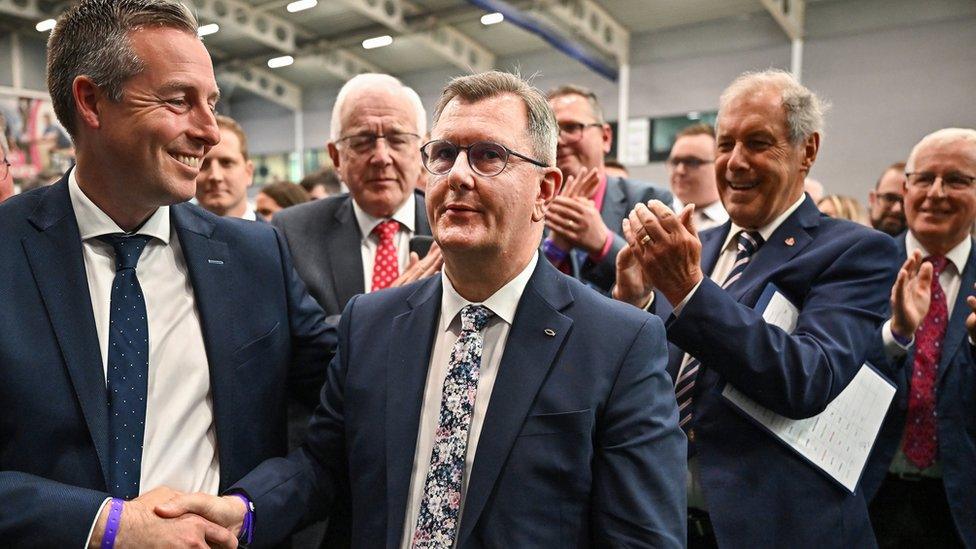NI election 2022: How UUP and SDLP lost their place as Northern Ireland's top parties
- Published

David Trimble and John Hume won an endorsement from Bono
As celebrity endorsements went - it was up there with the biggest.
Ulster Unionist Party leader David Trimble stood on one side of U2 frontman Bono and the nationalist SDLP's leader John Hume stood on the other as the rock star raised their arms in the air.
The event was the Concert for Yes - held to encourage votes in Northern Ireland to endorse the Good Friday Agreement four days before the 1998 referendum.
When the results came in, Trimble and Hume got the result they wanted as voters backed the peace deal which ended the worst of the Troubles after 30 years of violence.
By the end of the year Trimble would be in office as first minister of Northern Ireland, with Hume's deputy Seamus Mallon in the deputy first minister's post.
At great political and personal risk the leaderships of the UUP and SDLP had been instrumental in securing the agreement.
Hume and Trimble won the Nobel Peace Prize in 1998 for their efforts.
At the assembly election that summer the UUP won the most seats - 28 - with 21.3% of the first preference vote, while the SDLP won the most first preference votes with 22% and returned with 24 seats.
They were the dominant parties in unionism and nationalism respectively.
At this year's election their combined vote share was just 20.3%.
The UUP lost one seat - dropping to a total of nine - and did not manage to mount any kind of a counter-offensive on the DUP after years of playing second fiddle.
The SDLP lost four and has just eight assembly members at Stormont.
What went wrong?
The UUP was put under heavy pressure from more hardline unionists, including the DUP, for signing up to the Good Friday Agreement.
It was subject to particular criticism for the presence of the IRA's political wing Sinn Féin in the power-sharing executive at a time when the IRA had not decommissioned its weapons and when Sinn Féin had not signed up to support Northern Ireland's police service.
In October 2002 that power-sharing executive collapsed after police raided Sinn Fein's offices at Stormont after allegations of a republican spy ring, external operating out of them.
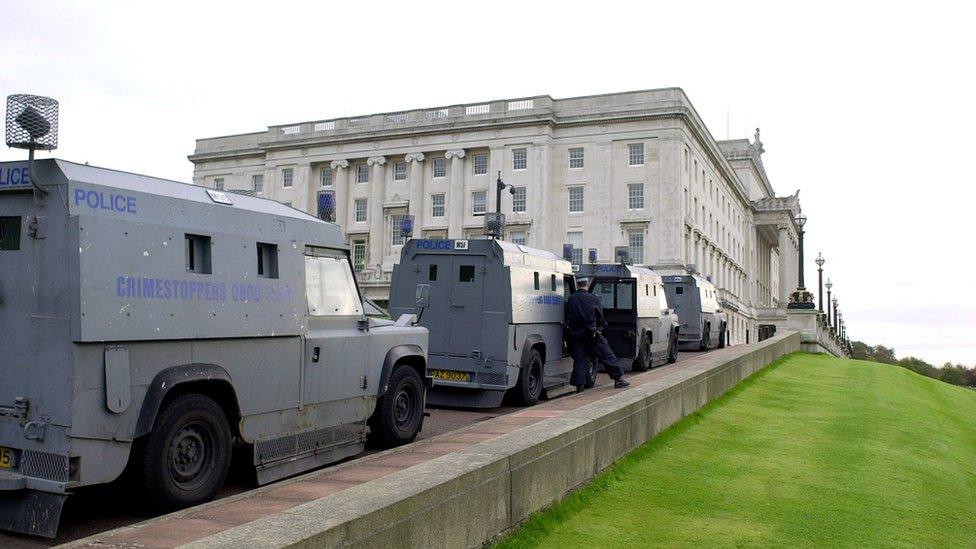
A police raid on Sinn Féin's Stormont offices in 2002 brought down the executive
But initially the DUP took support off other smaller unionist parties such as the UK Unionists rather than directly from the UUP, this allowed them to overtake the UUP as the biggest party in the assembly in 2003.
At the same election Sinn Féin overtook the SDLP to become the biggest nationalist party.
Then, in the space of a matter of months, two events rocked the foundations of the peace process.
Days before Christmas 2004, £26.5m of cash was stolen from Northern Bank in Belfast city centre.
The police and the British and Irish governments all blamed the IRA, although both the IRA and Sinn Féin denied the organisation was involved.
Then, in January 2005, Robert McCartney was murdered outside a bar in Belfast city centre.
Once again, the IRA was blamed.
The DUP said this showed Sinn Féin was unfit to be involved in government and at the 2005 general election the more hardline unionists replaced the UUP as Northern Ireland's biggest party at Westminster.
Trimble lost his seat to a DUP challenger.
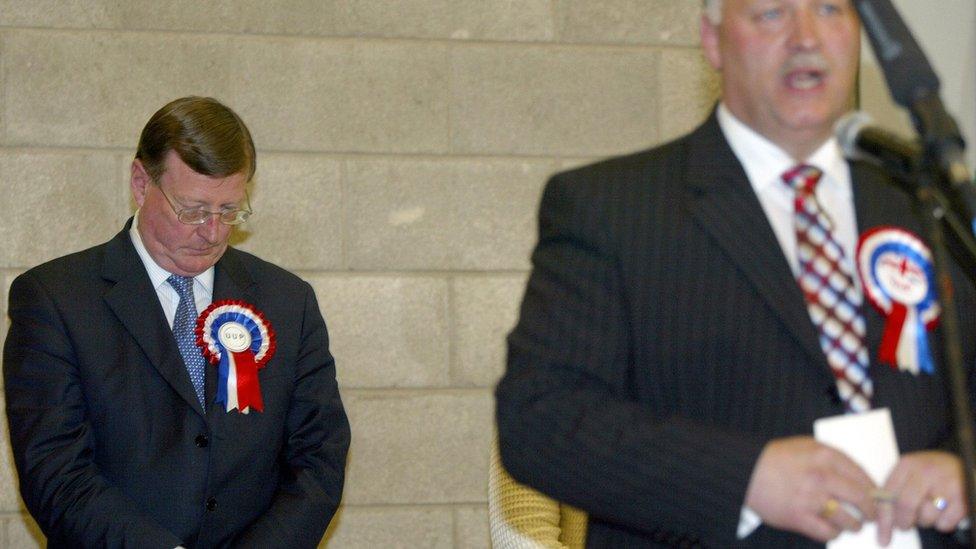
David Trimble lost his Westminster seat to David Simpson (right) in 2005
The SDLP also began to lose support.
Its leadership was seen as older and associated with an earlier era and there was a lack of younger talent coming through the ranks.
The end of the IRA's campaign also began to change perceptions, especially among younger voters.
During the Troubles, many nationalists would not countenance voting for a party linked to the IRA.
But once the worst of the violence had ended and Sinn Féin was sitting beside the SDLP at the executive table, this attitude began to change.
Consolidation
In 2007 the assembly and executive were restored after a new deal was struck between Northern Ireland's main parties, external and the British and Irish governments in the Scottish town of St Andrew's.
One of the tweaks to the Good Friday Agreement was regarding the way the first minister and deputy first minister were elected.

GOVERNMENT CRISIS: What happens next?
HISTORIC MOMENT: From IRA politics to NI's biggest party
SINN FÉIN: What does the party want?
THE ASSEMBLY: How power-sharing works in Northern Ireland

It was originally a cross-community vote in the assembly, but now the biggest party would become first minister and the biggest party from the second-biggest bloc would become deputy first minister.
The DUP pushed a new message to unionist voters - that it needed to be the biggest party to stop Sinn Féin getting the first minister's post.
DUP leader Ian Paisley became first minister, with Sinn Féin's deputy leader Martin McGuinness, a former IRA leader, becoming deputy first minister.
A year later, in 2008, firebrand Christian fundamentalist preacher Paisley, who had founded the party, stepped down and was replaced by Peter Robinson.
Robinson too was a long-serving DUP politician but he moved to gain votes from less hardline unionists, suggesting policies such as educating Catholic and Protestant children together - a move that would have been unheard of in the DUP just a few years earlier.
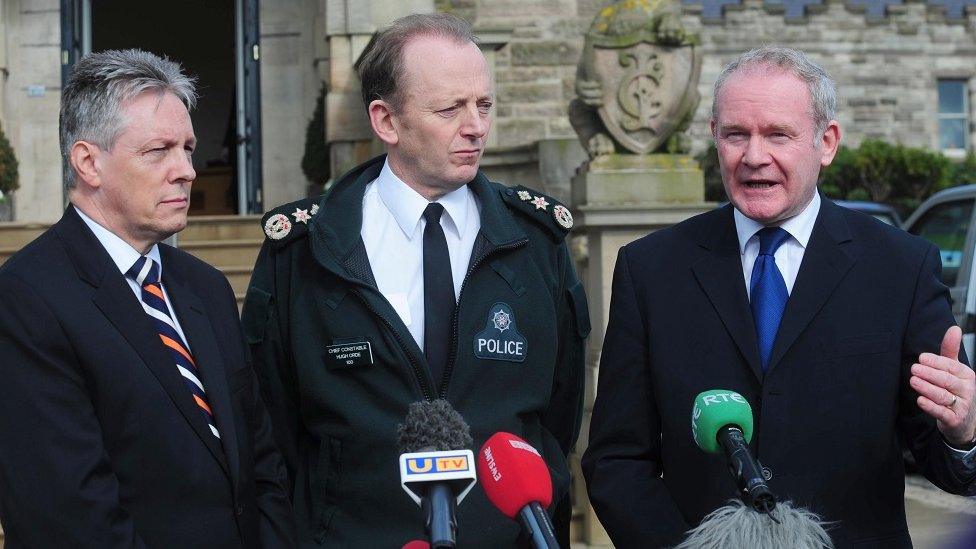
Martin McGuinness (right) stood with Peter Robinson and Chief Constable Hugh Orde to condemn the murder of a police officer in 2009
Meanwhile Sinn Féin was increasingly seen by more nationalists as a different party from the one which had supported the IRA.
When dissident republicans murdered two British soldiers and a police officer in 2009, McGuinness stood alongside Robinson and Chief Constable Sir Hugh Orde and described the killers as "traitors to the island of Ireland".
In 2014 the committed Irish republican raised a glass to toast the Queen when the Irish president carried out a state visit to the UK.
The SDLP and UUP on the other hand struggled for electoral success and burned through leaders.
In the century between its foundation and Trimble's resignation the UUP had 12 leaders. In the 17 years since then it has had six.
A new threat
In the 2003 election the centre-ground Alliance Party suffered a demoralising result.
It won just 3.7% of the first preference vote, but managed to hang on to six seats.
But the party could not go much lower and it steadily began to mount a comeback.
The party positions itself as distinct from the traditional unionist and nationalist tribes.
It aims to gain votes from across the political spectrum and particularly looks for support from younger voters with more socially liberal attitudes on issues such as same-sex marriage.
As its popularity continued to grow there was a new threat to the SDLP and UUP - not only were they at risk from their bigger nationalist and unionist rivals respectively, but also from the centre ground.
On Friday, Alliance won 17 seats, the same number as the UUP and SDLP combined.
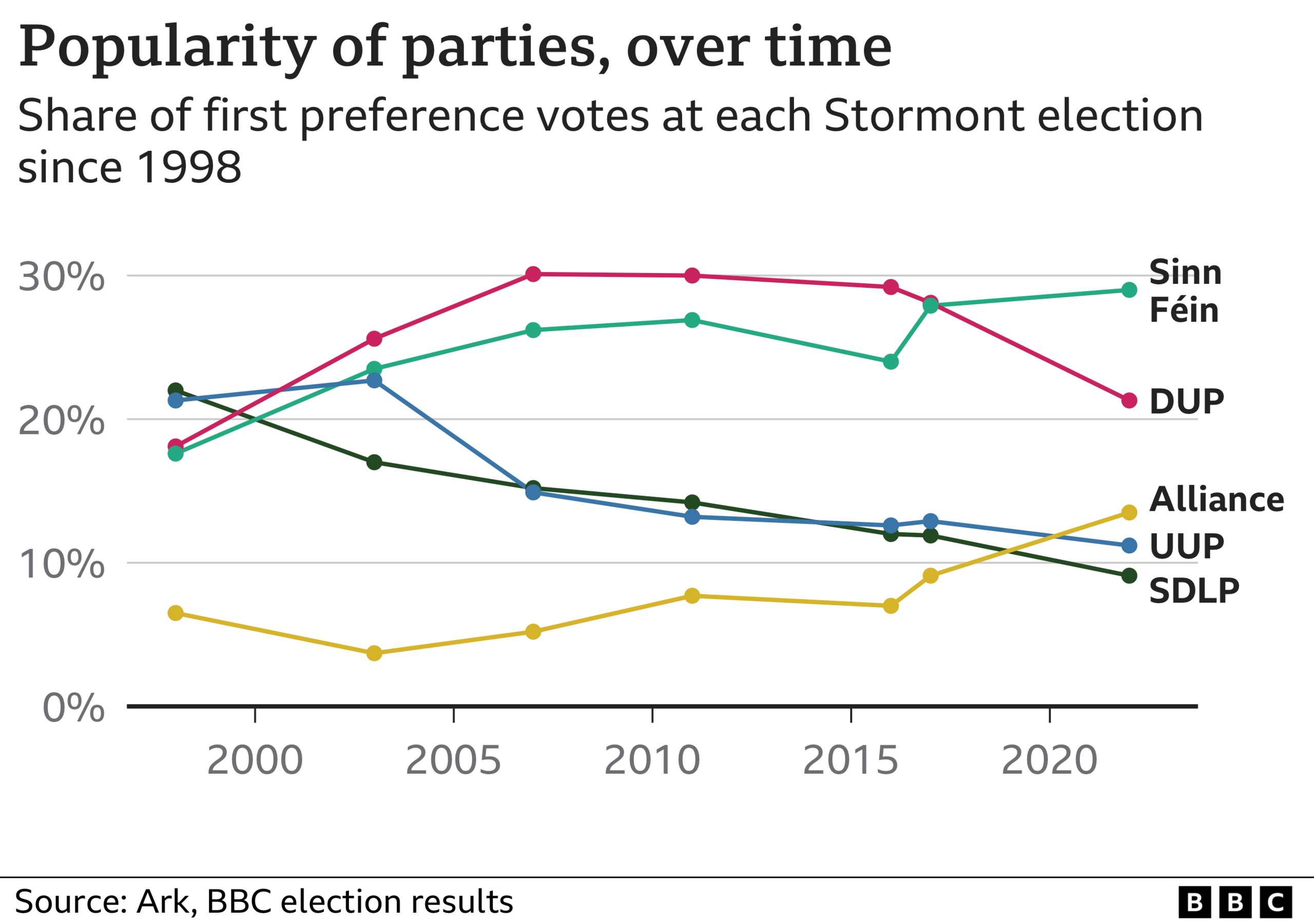
Alliance has overtaken the UUP and SDLP
The top parties of 1998 - and many years before - finished in fourth and fifth place.
The SDLP will point to its two huge victories in the 2019 general election - in Belfast South and Foyle - and to the election of new, younger members such as Matthew O'Toole and Cara Hunter in the recent assembly poll.
UUP leader Doug Beattie still believes his more liberal brand of unionism can deliver for his party.
But the days of sharing the stage with Bono at the Waterfront Hall remain a distant memory.
- Published9 May 2022
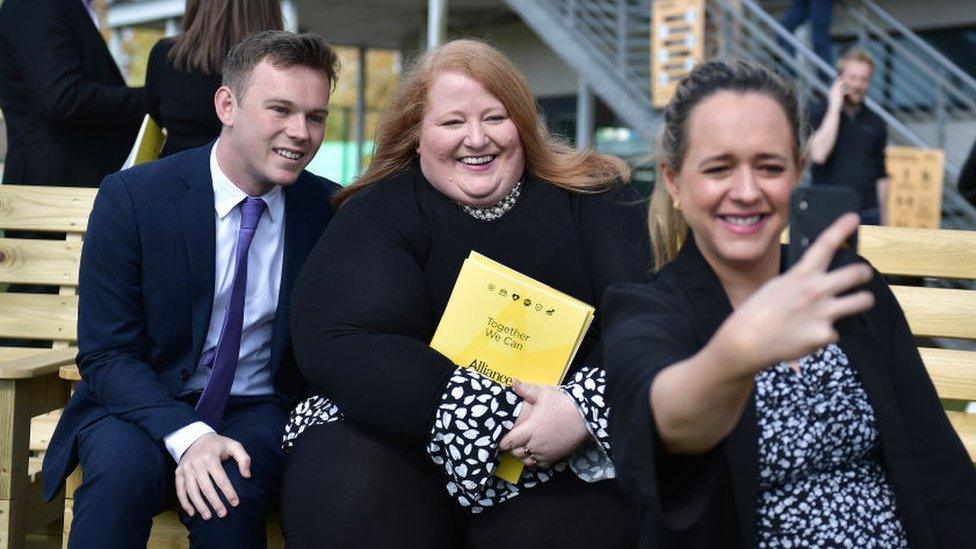
- Published7 May 2022
- Published8 May 2022
